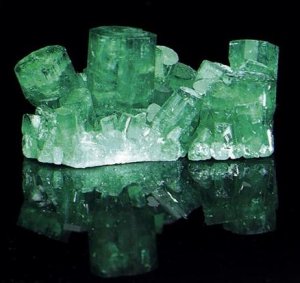coolguynamek
Rough_Rock
- Joined
- May 29, 2004
- Messages
- 58
In one word: "No"Date: 11/30/2004 10:43:46 AM
Author: coolguynamek
Thanx Mogok & Richard M,
Dear mogok & Richard M,as per your knowledge also by touching the stones you can come to know whether that stone is natural or synthetic?
Chatam emerald crystals... from HEREDate: 11/30/2004 12:51:15 PM
Author: velouriaL
Do synthetic stones have inclusions? I would almost prefer it if they did, especially with emeralds.


Dear Mogok & Richard M,
Its really true that without the knowledge of gemology training a person can''t move forward and buy/sell gems. One has to get himself/herself into confidence and do the course for the same.
But I cant understand about the master jewellers who has not dont any gemological course and can identify the gems whether it is synthetic & natural. Do we have to trust these jewellers who are masters or are they telling the truth to the person who wants to sell there gems and jewellery. coz nowadays so many synthtic stones are on sale.
Why would someone who knows tell what he knows is yet another story. I a very convinced that a serious amount of visual experience (years of it!) at least compensate for the science in the complicated overlapping way that Vincent explains so very well...Date: 12/3/2004 9:396 AM
Author: coolguynamek
But I cant understand about the master jewellers who has not dont any gemological course and can identify the gems whether it is synthetic & natural.
Do we have to trust these jewellers who are masters ...


